
Karen Alim
TU Munich
Germany
EMBL Course
Developing systems at all biological scales are subject to transitions between states of collective organisation that are critical for their function and evolution. The study of transitions requires bridging biological scales and integrating diverse disciplines, including statistical physics, nonlinear dynamics, and developmental biology. Recent technological advances in quantitative biology, the acquisition of big data and machine-learning based analysis now make it possible to study this topic.
This course will give applicants the unique opportunity to closely interact with a diverse group of renowned scientists (speakers/trainers) who work on biological transitions in fundamental developmental processes including morphogenesis, signal transduction, gene expression, collective cell and animal behaviour. Participants will be introduced to the theoretical knowledge of biological transitions and get hands-on training using state-of-the-art methods applied in-depth in different model systems.
This course is intended for graduate students and post-doctoral fellows with a STEM background. We aim to balance the number of participants with hands-on experience and theoretical background. A key criterion for selection is the potential benefit of adding novel developmental biology and biophysics methods to the participant’s own research.
“Attending ‘Plasticity in developing systems’ [previous title] was a fantastic experience as an ECR. We took part in hands-on practical sessions exploring the relationship between environment and development in a range of organisms, attended inspired curiosity-driven research lectures and had the opportunity to meet and work alongside incredible young scientists. This is the future of Developmental Biology!” – Jennifer Love, University of Manchester, UK
“As a PhD student coming from an engineering background, the exposure to a wide variety of experimental techniques and organisms played a crucial role in shaping my postdoc and future research aspirations. Additionally, the remarkable quality of speakers and trainers added to the overall excellence of the experience.” – Guillermo Yáñez Feliú, Newcastle University, UK

TU Munich
Germany
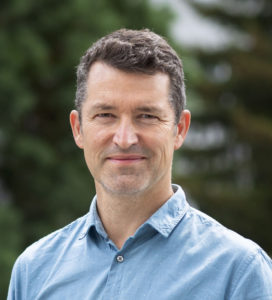
EMBL Heidelberg
Germany

EMBL Heidelberg
Germany
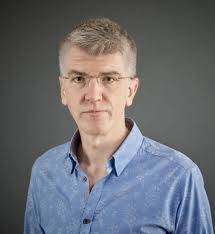
The Francis Crick Institute
UK

Institut Pasteur
France

Max Planck Institute of Animal Behaviour
Germany
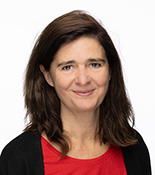
EMBL Heidelberg
Germany
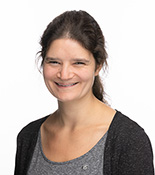
EMBL Heidelberg
Germany

EMBL Heidelberg
Germany

Gulbenkian Institute for Molecular Medicine
Portugal

EMBL Heidelberg
Germany
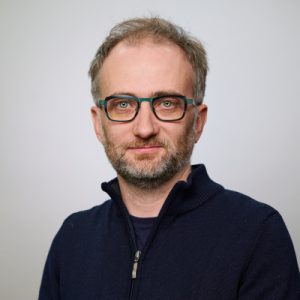
Université de Genève
Switzerland

EMBL Heidelberg
Germany

EMBL Heidelberg
Germany

TU Munich
Germany

The Francis Crick Institute
UK

EMBL Heidelberg
Germany

EMBL Heidelberg
Germany

EMBL Heidelberg
Germany

Course and Conference Officer
EMBL Heidelberg
Germany

Scientific Training
Officer
EMBL Heidelberg
Germany

EMBL Heidelberg
Germany

EMBL Heidelberg
Germany
Are you on social media? Post using #EMBLDevBio and don’t forget to tag @EMBLEvents.
| Time (Europe/Berlin) | Speaker |
|---|---|
| 08:40 – 09:30 | Welcome, house notes and course overview |
| 09:30 – 10:30 | Flashtalks |
| 10:30 – 11:00 | Coffee break |
| 11:00 – 12:00 | Lecture: From unicellularity to multicellularity Thibaut Brunet – Institut Pasteur, France |
| 12:00 – 13:00 | Lunch |
| 13:00 – 14:00 | Meet the speaker Thibaut Brunet – Institut Pasteur, France |
| 14:00 – 15:00 | Introduction to practical 1: Theory of phase transitions, critical and bifurcation points Isabella Graf – EMBL Heidelberg, Germany James Briscoe – The Francis Crick Institute, UK |
| 15:00 – 19:00 | Practical session 1: Theory of phase transitions, critical and bifurcation points Isabella Graf – EMBL Heidelberg, Germany James Briscoe – The Francis Crick Institute, UK 1 trainer from Briscoe lab 1 trainer from Alim lab 2 trainers from the Graf group |
| 19:00 – 20:00 | Dinner |
| Time (Europe/Berlin) | Speaker |
|---|---|
| 09:20 – 09:30 | Overview of the day Nicoletta Petridou – EMBL Heidelberg, Germany |
| 09:30 – 10:30 | Lecture: Biological physics and morphogenesis Karen Alim – TU Munich, Germany |
| 10:30 – 11:00 | Coffee break |
| 11:00 – 12:00 | Meet the speaker Karen Alim – TU Munich, Germany |
| 12:00 – 13:00 | Lunch |
| 13:00 – 13:30 | Introduction to practical 2: Aggregative development in wildtype slime mold species Jordi van Gestel – EMBL Heidelberg, Germany |
| 13:30 – 18:00 | Practical session 2: Aggregative development in wildtype slime mold species Jordi van Gestel – EMBL Heidelberg, Germany 4 trainers from the van Gestel group |
| 18:00 – 19:00 | Dinner |
| 19:00 – 21:00 | Poster Session 1 (odd numbers) |
| Time (Europe/Berlin) | Speaker |
|---|---|
| 09:20 – 09:30 | Overview of the day James Briscoe – The Francis Crick Institute, UK |
| 09:30 – 10:30 | Lecture: Theoretical physics of biological development Guillaume Salbreux – University of Geneva, Switzerland |
| 10:30 – 11:00 | Coffee break |
| 11:00 – 12:00 | Meet the speaker Guillaume Salbreux – University of Geneva, Switzerland |
| 12:00 – 13:00 | Lunch |
| 13:00 – 13:30 | Introduction to practical 3A: Tissue material phase transitions in developing zebrafish embryos Nicoletta Petridou – EMBL Heidelberg, Germany |
| 13:30 – 14:00 | Introduction to practical 3B: TBC Alexander Aulehla – EMBL Heidelberg, Germany |
| 14:00 – 18:30 | Practical session 3A: Tissue material phase transitions in developing zebrafish embryos Nicoletta Petridou – EMBL Heidelberg, Germany 2 trainers from the Petridou group |
| 14:00 – 18:30 | Practical session 3B: TBC Alexander Aulehla – EMBL Heidelberg, Germany 2 trainers from the Aulehla group |
| 18:30 – 19:30 | Dinner |
| 19:30 – 21:30 | Poster Session 2 (even numbers) |
| Time (Europe/Berlin) | Speaker |
|---|---|
| 08:50 – 09:00 | Overview of the day Karen Alim – TU Munich, Germany |
| 09:00 – 12:00 | Data analysis for Practicals 2, 3 A & B Trainers from van Gestel, Petridou and Aulehla groups |
| 12:00 – 13:00 | Lunch |
| 13:00 – 13:30 | Introduction to practical 4: Size-dependent physiological changes during the life cycle of planarian flatworms Hanh Vu – EMBL Heidelberg, Germany |
| 13:30 – 18:00 | Practical session 4: Size-dependent physiological changes during the life cycle of planarian flatworms Hanh Vu – EMBL Heidelberg, Germany 4 trainers from the Vu group |
| 18:00 – 19:00 | Dinner |
| Time (Europe/Berlin) | Speaker |
|---|---|
| 00:00 – 00:00 | Free day |
| Time (Europe/Berlin) | Speaker |
|---|---|
| 09:20 – 09:30 | Overview of the day Jordi van Gestel – EMBL Heidelberg, Germany |
| 09:30 – 10:30 | Lecture: TBC Caren Norden – Gulbenkian Institute for Molecular Medicine, Portugal |
| 10:30 – 11:00 | Coffee break |
| 11:00 – 12:00 | Meet the speaker Caren Norden – Gulbenkian Institute for Molecular Medicine, Portugal |
| 12:00 – 13:00 | Lunch |
| 13:00 – 13:30 | Introduction to practical 5: Control of the larva-polyp transition via nerve-derived factors Aissam Ikmi – EMBL Heidelberg, Germany |
| 13:30 – 18:00 | Practical session 5: Control of the larva-polyp transition via nerve-derived factors Aissam Ikmi – EMBL Heidelberg, Germany 4 trainers from the Ikmi group |
| 18:00 – 19:00 | Dinner |
| 19:00 – 21:00 | Discussion: Responsible conduct of Research led by the organisers |
| Time (Europe/Berlin) | Speaker |
|---|---|
| 09:20 – 09:30 | Overview of the day Hanh Vu – EMBL Heidelberg, Germany |
| 09:30 – 10:30 | Lecture: Fundamental principles of collective animal behaviour Iain Couzin – MPI, Germany |
| 10:30 – 11:00 | Coffee break |
| 11:00 – 12:00 | Meet the speaker Iain Couzin – MPI, Germany |
| 12:00 – 13:00 | Lunch |
| 13:00 – 15:00 | Data analysis for practicals 4 and 5 Trainers from Vu and Ikmi groups |
| 15:00 – 18:00 | Preparation time for student presentations/extra time to visit the lab and ask questions to the DB trainers |
| 18:00 – 22:00 | BBQ and Party |
| Time (Europe/Berlin) | Speaker |
|---|---|
| 08:50 – 09:00 | Overview of the day |
| 09:00 – 10:30 | Student presentations |
| 10:30 – 11:00 | Coffee break |
| 11:00 – 12:00 | Feedback session |
| 12:00 – 13:00 | Lunch |
The course is limited to 16 participants. For selection purposes, please note that your application will not be considered without a letter of motivation.
Registration fees include admission, course materials, meals and coffee breaks.
This course includes accommodation and transportation to and from the ISG Hotel to the venue. The reduced fees and accommodation are covered thanks to the Theory@EMBL Transversal Theme.
| Academia | €550 |
| PhD Student | €550 |
| Industry | €1200 |
A letter to support your visa application will be issued, on request, once payment of the registration fee is confirmed. We recommend that you book your visa appointment as soon as possible, to avoid any delay with your visa application.
The registration fee should be paid only after acceptance to the course. The results will be announced approximately 2-3 weeks after the application deadline.
After you have logged in and successfully registered, you will receive an email asking you to submit your motivation letter. Click on the link provided and enter your motivation letter in the text box provided. Alternatively you can submit your motivation letter by clicking on the link on the confirmation page directly after registering.
Instructions
Please note:
For detailed instructions, please watch our video on how to submit a course motivation letter.
For further information about registration and motivation letter submission please refer to the FAQ page.
Limited financial assistance is provided by the EMBL Advanced Training Centre Corporate Partnership Programme and EMBO in the form of registration fee waivers, travel grants and childcare grants.
Your place in the meeting is only confirmed by paying the registration fee, which is mandatory even when receiving a fee waiver.
The fee waiver will cover the registration sum that you have paid to attend the course.
The travel grant will cover the cost of travel (airfare, train, bus, taxi, accommodation, visa, and/or registration fees*) and is provided up to specified caps which are normally as follows:
– up to €400 for participants travelling to an EMBL Course within Europe.
– up to €1000 for participants travelling to an EMBL Course from outside Europe.
– up to €500 for any participant travelling to an EMBO Practical Course.
– up to €1000 for any participant working in Chile, India, Singapore or Taiwan travelling to an EMBO Practical Course.
*Registration fees are only covered for EMBO Practical Courses
The organisers may reduce the grant cap to accommodate more participants. Recipients will be notified of their travel cap amount when they are informed of the outcome of their application. Original receipts must be provided with your signature for all costs incurred within two months of completion of travel. Scanned copies cannot be accepted.
There is the possibility to apply for a childcare grant to offset child care costs incurred by participants, speakers, trainers and organisers when attending a course. Eligible costs include (but are not limited to) fees for a babysitter or child-care facility and travel costs for a caregiver. Please note that priority will be given to early-stage researchers. There is a limited amount of funding available for the childcare grants and funds will be distributed amongst eligible applicants.
Applies to selected courses only. Availability will be indicated during the abstract or motivation letter submission process.
This grant covers costs related to your attendance to the course (registration, travel and accommodation costs). The grant is restricted to PhD students and postdocs who conduct basic biomedical research.
Whether you are eligible to apply for a travel grant, depends on when you received your university entrance qualification (e.g. Abitur, A-Levels, High School Diploma, Final State Examination):
– for PhD and MD students, as well as graduates, the university entrance qualification must not have been obtained more than 11 years ago at the time of the envisaged course
– for postdocs, the university entrance qualification must not have been obtained more than 13 years ago at the time of the envisaged course
If you are attending virtually, you can apply for financial assistance in the submission portal by the abstract deadline. Read the instructions on how to apply for financial assistance. Only submissions for financial assistance will be accepted. Presentation abstracts cannot be submitted here and will be declined.
In your application you will be asked to summarise your current work, answer questions regarding why your lab cannot fund your attendance, and how your attendance will make a difference to your career. Application for financial support will not affect the outcome of your registration application.
*For some events, applications for Childcare Grants will still be done by email. Information about the grant will be sent out shortly after the abstract/motivation letter deadline. Please contact the event Conference Officer if you have any questions.
The scientific organisers will select the recipients of registration fee waivers during the participant selection process for courses. Results will be announced approximately 6 – 8 weeks before the event start date, however for some events this may be delayed. Selection results do not impact your admission to the meeting. Selection for registration fee waivers and travel grants is based on scientific merit, your current work or study location, the reasons for needing financial support, and the impact this event will have on your career.
Childcare grants will be allocated in the same timeframe (6-8 weeks before the event start date). Please note that priority will be given to early-stage researchers.
Check out this list of external funding opportunities.
For further information about financial assistance please refer to the FAQ page.
Accommodation in twin rooms, including breakfast is included in the registration fee. Accommodation will be booked for the selected participants at the ISG Hotel for the default dates of 1 to 9 July 2025.
In case you would like to have a single room, please let the hotel know and please note that you will be required to pay an additional cost of 32€ per night (availability of single rooms may be limited). This should be paid by you directly to the ISG Hotel during your stay.
We recommend that all course participants stay at the ISG Hotel for the course.
For travel information, please see here.
If you are travelling to the conference within Germany then you are eligible for the Deutsche Bahn ‘Event Ticket’ (called the ‘Veranstaltungsticket’ in German). This will result in a lower ticket price if your travel distance to Heidelberg is more than 100 km. You need to provide proof of your event attendance when purchasing the ticket.
For more information in English see here or in German see here.
You can book your ticket here.
Shuttle buses will go from the ISG Hotel to EMBL and back, mornings and evenings. A bus schedule and location of the bus stops will be made available prior to the meeting.
Address: EMBL Heidelberg, Meyerhofstraße 1, 69117 Heidelberg, Germany
For more information about accommodation and travel, please refer to the FAQ page.
All meals and coffee breaks are included in the registration fee. Our catering staff will prepare a wide variety of vegetarian meals, meat and fish dishes, soups, pasta, fresh fruit and vegetables, as well as a variety of desserts.
Please wear your badge at all times when serving yourself.
No food or drinks are allowed in the laboratories.
In most places the electricity is 220 volts AC (50 cycles). An adaptor and a plug that fits the German socket may be needed for your appliances/laptop (i.e. American, Japanese, etc.). A USB charging station for electronic devices is available at the registration desk..
If you are interested in purchasing EMBL merchandise (products presented in the glass display in the registration area), please email the EMBL shop to place an order or get in contact with your Course Organiser.
Kindly note the EMBL shop is only open upon request and all purchases must be made in cash (Euros only).
Please read EMBL’s COVID-19 safety policy for on-site events.
Do not smoke in any EMBL building.
Eating and drinking is prohibited in all laboratories.
Do not enter any restricted areas or the laboratories unless instructed to do so.
If first aid is required …
In case of fire …
Beyond first aid…
Please remember to bring your own medication, if needed, to the conference. Note that the next pharmacy is a 4-minute drive from the EMBL, but for many medications you will be required to see a doctor to get a prescription.
Ensure in advance that your medical insurance will cover you during your visit in the event that you do need to see a doctor while in Heidelberg. In any case, the EMBL Course and Conference Office will assist you to get to the pharmacy and a doctor of your choice if necessary.
Wi-Fi is available on campus. Log in using the EMBL-Events network and the event specific password, which will be provided on site. The eduroam network (secure, worldwide roaming access service developed for the international research and education community) is also available.
‘’Lost and Found’’ items are kept at the registration desk until the end of the conference.
There are lockers available on-site to store your luggage, which require a 2 EURO coin to operate. There is another luggage room on level E0, which is free to use but remains unlocked during the conference.
There is a nursing room available in the ATC Rooftop Lounge on level A29.
During the conference, an EMBL Photographer may be taking photos. If you would not like to appear in these, please inform the photographer or a member of the Course and Conference Office.
We can help to print your boarding pass/train ticket. Please send it to events@embl.de and collect your print-outs at the registration desk.
There is a room for prayer, meditation, and yoga located on level E0 behind the Auditorium. Please be respectful of others using the room.
A variety of activities in Heidelberg can be found on the website of Heidelberg Marketing.
During the event, we provide conference shuttle buses to and from EMBL. In addition, there is the public bus 39A that serves the EMBL campus and taxis can be easily booked at any time. Information on the shuttle buses can be found on the individual event website and more detailed information on travelling to EMBL can be found on our Travel Information page.
The EMBL eCampus learning platform will be used to collaborate, communicate and network with all of the course participants. All participants will receive information on how to join shortly before the course. We recommend using Chrome, Safari or Mozilla Firefox browsers for eCampus.
Zoom will be used for the live talks and Q&A sessions. More information will be provided closer to the start of the course.
While using the software during the course, please make sure you have nothing else using your bandwidth. We recommend using a wired connection.
Please find additional information including FAQs and terms and conditions on our Information for Participants page.
Event sponsor
Event supporter
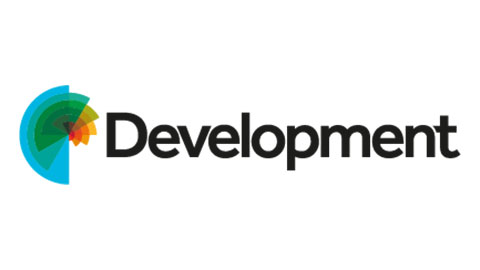
Sponsorship opportunities
We offer a variety of event sponsoring possibilities, with the flexibility to select a set sponsorship package or combine individual sponsorship options to suit your event budget. Discounts are available for companies sponsoring multiple events at EMBL Heidelberg. View other events, or contact sponsorship@embl.de for further information.
If you are interested in becoming a media partner of this event, please visit our media partnerships webpage.
EMBL wishes to warn sponsors of EMBL conferences and courses of fraudulent schemes purporting to offer sponsorship opportunities on behalf of EMBL or affiliated with EMBL officials. One current scam campaign of which we are aware is conducted using the name ‘Judy Eastman’ (judy@gopcontact.a2hosted.com) and entails approaches to sponsors offering sponsorship opportunities on EMBL’s behalf. Please be kindly advised that all relevant communication regarding sponsorship of EMBL conferences, symposia and courses is handled by EMBL directly and is sent from an official EMBL account. EMBL does not work with any external providers on sponsorship acquisition.
Please also note that:
Suspicious communications purportedly from, for or on behalf of EMBL should be reported to EMBL at the following email address sponsorship@embl.de.
Want to let others know you’re attending this event? Take a look at our shareable media and feel free to use them in your social media channels or presentations.
Date: 2 - 9 Jul 2025
Location: EMBL Heidelberg
Venue: EMBL Advanced Training Centre
Deadline(s):
Application: Closed
Organisers:
Contact: Luana Ribeiro